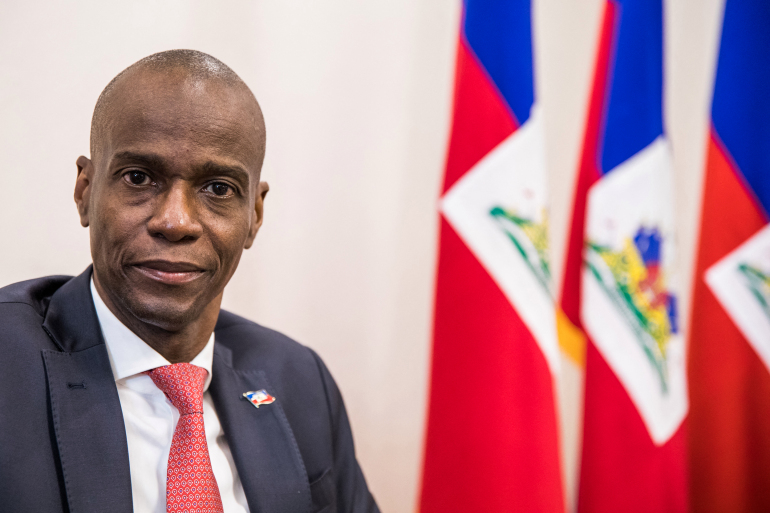
Haiti’s President Jovenel Moise was killed during an attack on his private residence early on Wednesday, according to the country’s acting Prime Minister Claude Joseph.
Joseph said in a statement that a group of unidentified individuals attacked Moise’s home at around 1 a.m. and fatally wounded the head of state. The statement does not specify how the President was killed. Haiti’s first lady was shot and is receiving treatment, he added.
The Prime Minister called the assassination a “heinous, inhumane and barbaric act” and called for calm.
“The security situation in the country is under the control of the Haitian National Police and the Haitian Armed Forces,” the statement added. “All measures are being taken to guarantee the continuity of the State and to protect the Nation.”
It isn’t immediately clear who will replace Moise. Judge Jean Wilner Morin, President of the National Association of Haitian Judges, told CNN that the line of presidential succession in the country is now murky.
Haiti’s President of the Supreme Court would normally be next in line, but he recently died of Covid-19. For the acting Prime Minister Joseph to formally replace the President, he would have to be approved by Haiti’s parliament, said Morin. But without recent elections, the parliament is effectively defunct.
Moise was 53 years old. The former banana exporter was a controversial figure and spent most of the past year waging a political war with the opposition over the terms of his presidency.
Moise claimed his five-year term should end in 2022 because he wasn’t sworn in until February 2017. His inauguration was delayed over allegations of voter fraud during the 2015 election, which led to a presidential runoff that was postponed twice over what authorities called threats and “security concerns.”
Moise claimed his five-year term should end in 2022 because he wasn’t sworn in until February 2017. His inauguration was delayed over allegations of voter fraud during the 2015 election, which led to a presidential runoff that was postponed twice over what authorities called threats and “security concerns.”
Throughout his presidency, Moise had repeatedly failed to hold elections at local and national levels, leaving much of the country’s governing infrastructure empty.
White House press secretary Jen Psaki called the attack a “tragedy.” “It’s a horrific crime,” Psaki told CNN. “We stand ready and stand by them to provide any assistance that is needed … it’s important that people of Haiti know that.” She added that the White House was assessing the situation and gathering information.
Rival groups have battled with one another or the police for control of the streets, displacing tens of thousands of people and worsening the country’s humanitarian crisis. Infamous ex-police officer Jimmy Cherizier last week vowed before local media to carry out a “revolution” in the city.
At the same time, the country — the poorest in Latin America — is facing a dire economic situation. Its economy had been contracting even before the Covid-19 pandemic and shrunk further 3.8% in 2020, with about 60% of the population now living in poverty, according to the World Bank.